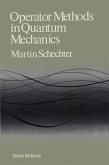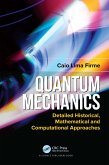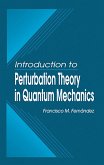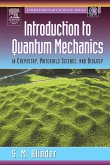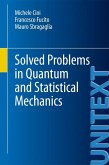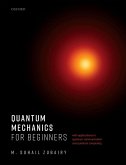Beginning with the Stern-Gerlach experiments and the discussion of spin measurements, and using bra-ket notation, Quantum Mechanics introduces students to an important notational system that is used throughout quantum mechanics. This non-traditional presentation is designed to enhance students' understanding and strengthen their intuitive grasp of the subject, and has been class tested extensively. The text takes advantage of the versatile SPINS software, which allows the student to simulate Stern-Gerlach measurements in succession. This interaction gets to the heart of Quantum Mechanics, and introduces the student to the mathematics they will be using throughout the course.
The full text downloaded to your computer
With eBooks you can:
- search for key concepts, words and phrases
- make highlights and notes as you study
- share your notes with friends
eBooks are downloaded to your computer and accessible either offline through the Bookshelf (available as a free download), available online and also via the iPad and Android apps.
Upon purchase, you'll gain instant access to this eBook.
Time limit
The eBooks products do not have an expiry date. You will continue to access your digital ebook products whilst you have your Bookshelf installed.
Dieser Download kann aus rechtlichen Gründen nur mit Rechnungsadresse in A, B, BG, CY, CZ, D, DK, EW, E, FIN, F, GR, HR, H, IRL, I, LT, L, LR, M, NL, PL, P, R, S, SLO, SK ausgeliefert werden.



